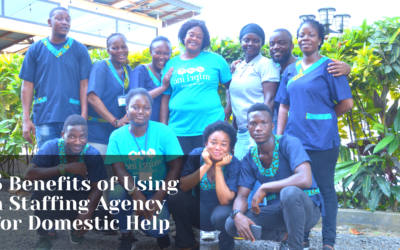Women’s Dominance of the Informal Sector, a Sign of True Progress?

This month, the world celebrates International Women’s Day. Throughout the month, you will hear stories of resilient women from all backgrounds. But the truth remains that women thrive in the world despite many obstacles. This is true for women in the informal sector who make up a disproportionate percentage of workers in the informal sector. A report by UN Women shows that over 80% of women in South Asia work in the informal sector, 74% in Sub-Saharan Africa, and 54% in Latin America and the Caribbean. While it is inspiring to see women dominating a sector of the workforce, the unequal treatment of women persists even in this apparent win.
The informal sector provides no legal protection for these women. They don’t enjoy social benefits such as pensions, health insurance, or paid sick leave. This is in addition to the unsafe working environments they sometimes find themselves in—including the risk of sexual harassment. Women in the informal sector are also more likely to bear a disproportionate burden in an economic crisis because of the absence of structures. For example, within the first few weeks of the Covid-19 lockdown, the employment rate for women dropped by a higher percentage compared to men. There are also long-term consequences. Globally, fewer women receive pensions compared to men, explaining why there are more elderly women living in poverty. Do women in the informal sector deserve better? I think you’d agree with me that they do!
To illustrate how women are shortchanged in the informal system, let’s consider domestic workers. Domestic workers perform tasks like cooking, cleaning, babysitting, and general housekeeping services. You’d agree that these are essential services tied to our very existence. Yet, women have provided these services for years—almost exclusively—amidst egregious exploitation. The exploitation of female domestic labor dates back to when women were simply expected to perform domestic tasks. In fact, a housewife who performed domestic duties was supposedly not contributing ‘substantially’ to her marriage by law.
When women are economically empowered, they create positive and measurable benefits in society
In more recent times, where it is impractical for some married women to combine domestic work with the high demands of their jobs. It is still other women—mostly uneducated and lower-class women—who fill in to provide domestic services (some things never change). What has also not changed is the sentiments attached to domestic work. People still consider it less respectable, low income, and transient. Some even think they are mere hobbies taken up by women— reflecting this belief that women’s economic empowerment is not of any consequence. That somehow women work in this sector just to while away time, concealing the real reasons that drive them into the informal sector in the first place.
Women dominate in the informal sector because of unequal access to education, capital, public services, social protection and infrastructure, skill development, gender-based equity, to mention just a few.
Although women are forced into the informal sector for these reasons, the informal sector is not necessarily the problem. Informal economic activities encompass a range of small-scale and largely self-employment activities. This makes the activities in the informal sector unstable and difficult to measure, but they significantly contribute to the general growth of society and contribute to both household and personal income.
We just need to recognize the enormous economic potential of tapping into the informal sector and making it more profitable and sustainable for women. When women are economically empowered, they create positive and measurable benefits in society. An April 2006 article in The Economist stated that the rise in female employment is the main driving force of economic growth in the last few decades— never mind that female employment is still significantly low. A recent study in developing countries also revealed that women are more likely to spend their income on providing food, education, and healthcare for their children. Making the informal sector a viable and lasting option for women is in everyone’s best interest.
So, in the spirit of celebrating women this month, we need to rethink our ideas about women in the informal sector. It is time to ensure that women in this sector are well trained, are paid competitive rates, and enjoy benefits the formal economy takes for granted.
– written by Jude Boateng







Recent Comments